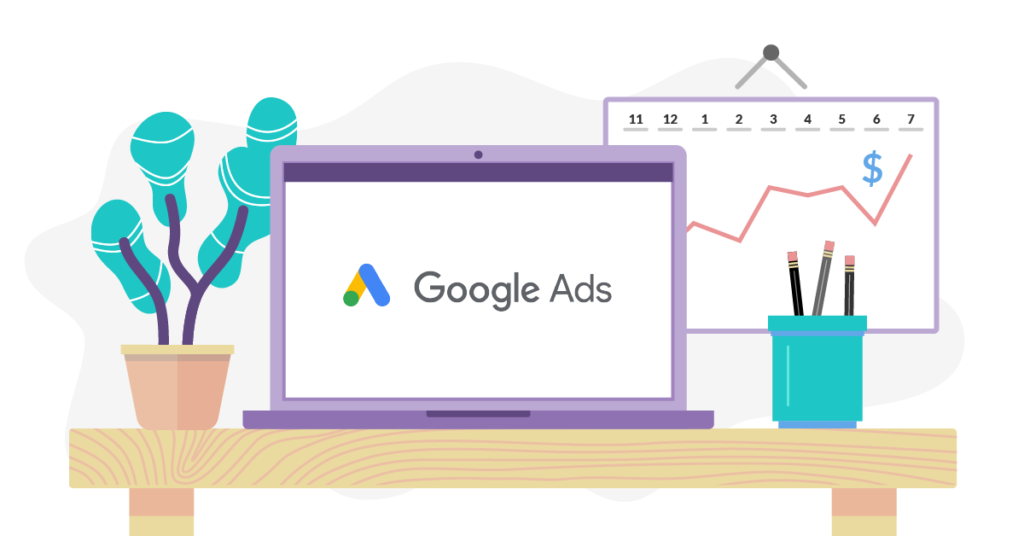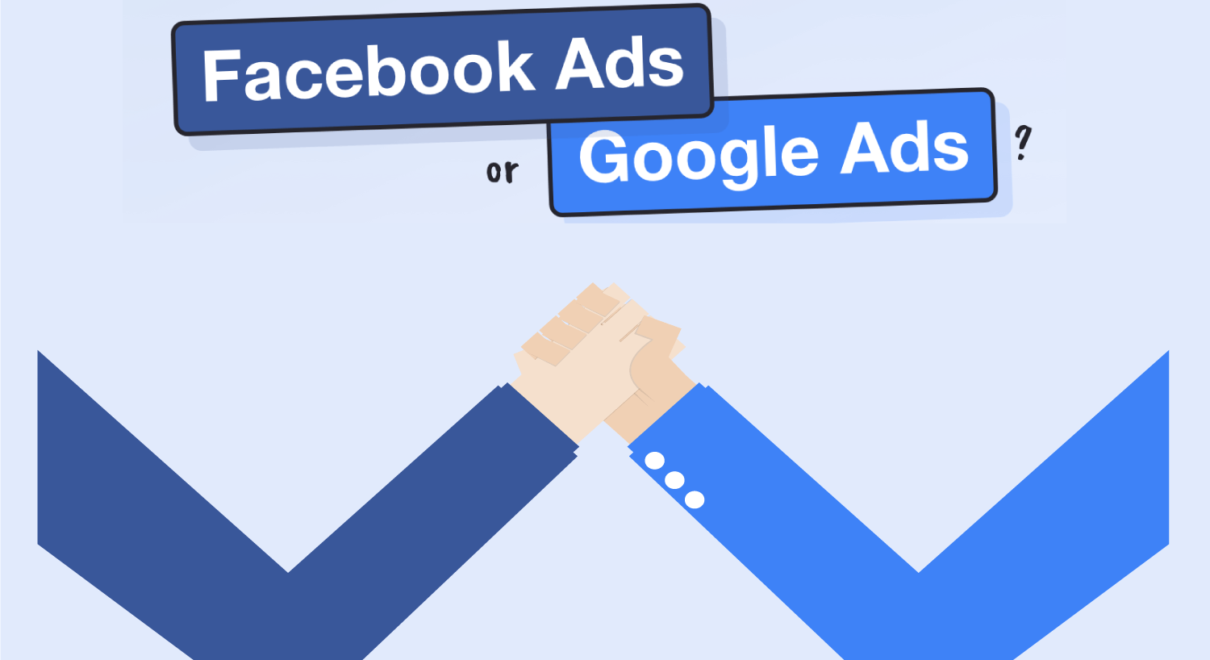One of the questions that have always bugged marketers is, “what’s better- Facebook Ads or Google Ads”? I guess it’s not that easy to give away a verdict about which one is better- Facebook Ads and Google Ads as we need to analyze and evaluate a lot of points before we can come to any conclusion about which platform we should focus our media budget on.
Let’s see how Facebook Ads and Google Ads different from each other.

Google Ads- Search Engine Marketing
Google AdWords is the world’s largest and most popular PPC advertising platform. The paid search focuses on the targeting of keywords and the use of text-based advertisements. Advertisers using AdWords bid on keywords – specific words and phrases included in search queries entered by Google users – in the hopes that their ads will be displayed alongside search results for these queries. Each time a user clicks on an ad, the advertiser is charged a certain amount of money, hence the name “pay-per-click” advertising. This comes under the more widely used term Search Engine Marketing (SEM).
Facebook Ads is a prime example of what is known as “paid social,” or the practice of Social Media Advertising(SMA). With the highest number of monthly active users of any social network, Facebook has become a highly competitive and potentially profitable element of many businesses’ digital advertising strategies.
It’s pretty naive to think which of the two between Facebook Ads and Google Ads is better. The real question should be
Which one between Facebook Ads and Google Ads is a better fit for my budget and what stage of audience am I targeting?
Talking simply, it depends on your needs. When it comes to the primary difference between Google AdWords and Facebook Ads, you can think of it this way: AdWords helps you find new customers, while Facebook helps new customers find you. Understand what you can afford to pay to gain a customer. If you don’t know this, you’ll spend a lot of money on any platform with no direction.
For instance, if your product or service is something so new that very few people actually search about it, then it might not fetch you excellent results from Search Engine Marketing, i.e., Google Ads and you might incur a very high PPC. On the other hand, if you go for Social Media Advertising i.e. Facebook Ads, you can spread more awareness about your brand, and also, the curiosity might as well draw some good traffic to your landing page.
We should rather learn how to leverage each of these platforms and how to effectively use Search Engine Marketing and Social Media Advertising to reap the best benefits for your business.
Google is the World’s most popular and frequently used search engine, therefore, when you think of Search Engine Marketing(SEM) Google Ads should always be your priority. Google’s advertising offerings are split across two primary networks – the Search network, and the Display network. The Search network encompasses the entirety of Google as a search engine, and advertisers can bid on millions of keywords and phrases to target their prospective customers.
The Google Display Network, which offers advertisers more visual ads such as banners, spans approximately 98% of the World Wide Web, making it a great choice for advertisers who want to accomplish marketing goals that aren’t necessarily as conversion-driven as those of PPC ads, such as raising brand awareness on a large scale using banner ads.
Facebook for business

With more than 1.55 BILLION monthly active users, the true strength of Facebook’s immense audience lies in the fine granularity with which advertisers can target Facebook’s users. One of the most powerful applications of this functionality is the ability for advertisers to create what are known as “lookalike audiences.” Advertisers can upload customer information from their own databases to Facebook, which then applies to filter based on its own data and information provided by third-party data brokers to match users whose information the advertiser uploads. This creates the “lookalike” audience of users, allowing advertisers to effectively double the potential reach of their Facebook Ads by targeting new customers who exhibit the same interests and consumer behavior as their existing customers.
The bottom line is, there is no one-stop-solution for this question. You’ve to experiment and analyze and learn what fits you the best. You should harness the power of both Search Engine Marketing as well as Social Media Advertising to get the best results. So, the next time you make a budget make sure you divide it according to your needs between Facebook Ads and Google Ads or contact us at Digiturtle Marketing and Advertising for help!

